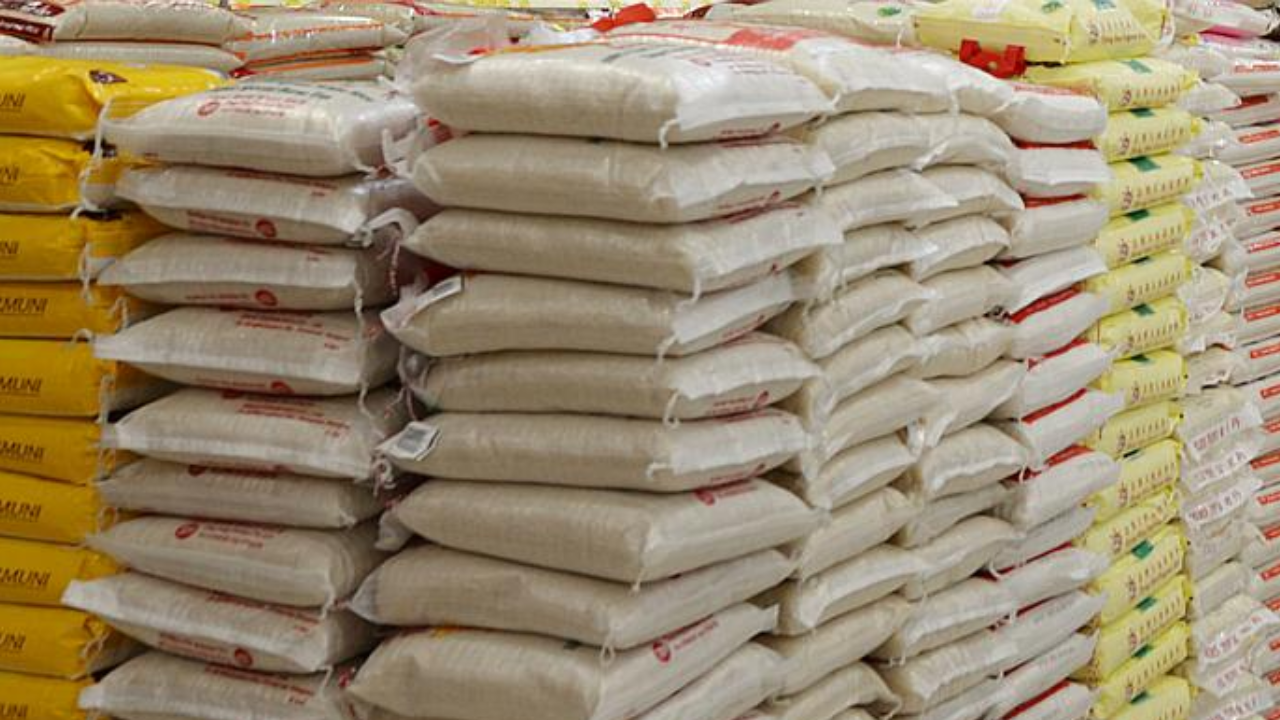
50kg Rice Price Drops to N58,000: A Breath of Fresh Air for Nigerians
In a country where the price of food staples has skyrocketed, the news that the 50kg rice price drops to N58,000 is a momentary relief for millions of Nigerians. For months, the price of rice had climbed steadily, making it one of the most expensive commodities on the market. The sudden price reduction has caught the attention of traders, households, and policymakers alike.
The Rise of Rice Prices: A Burden for Nigerian Families
For many Nigerian families, rice is more than just a meal — it’s a daily staple. In recent years, the cost of purchasing rice had become an increasingly burdensome reality for low and middle-income households. The price of a 50kg bag of rice had climbed to as high as N80,000 in some markets, pushing families to cut back on their consumption or seek alternatives.
“Rice is a must in every home, but this price made it impossible for most families,” says Amina Usman, a mother of three in Kano. “We would have to skip a few meals just to afford it.”
In some parts of the country, rice became a luxury, with families opting for smaller quantities or switching to other grains like millet or maize. The growing price of rice had intensified food insecurity in Nigeria, especially for those in rural areas where incomes are generally lower.
The Price Reduction: A Relief for Nigerian Households
However, the recent reduction in the price of a 50kg bag of rice to N58,000 is offering new hope. This drop has been attributed to various factors, including improvements in local rice production and a slight stabilization of the exchange rate.
For many Nigerians, this price change comes as a welcome break from the increasing cost of living. “It’s good news for my family,” says Emmanuel Akintoye, a small-scale farmer in Ogun State. “The last few months have been tough, but now we can buy rice without completely breaking the bank.”
The price reduction has already made an impact on markets. In Lagos and Ibadan, major markets have reported an influx of customers eager to buy rice at more affordable rates. Traders like Chika Obi, a vendor in Yaba Market, have noted a sharp increase in foot traffic and sales. “Business is booming again. People are happy they can buy rice without worrying about the cost,” Obi explains.
The Human Side of the Price Drop: A Glimmer of Hope
While the reduction in rice prices is an economic development, its effects are most keenly felt at the household level. Families like those of Amina Usman and Emmanuel Akintoye are breathing easier, knowing that they will not have to choose between buying food and other essentials.
“Rice is central to our diet, and it’s what we feed our children,” says Usman. “This price reduction means I can feed my family properly without feeling guilty for not being able to provide enough.”
The situation is similar in Abuja, where businesswoman Ngozi Adeyemi describes the impact of the price drop as a “game-changer.” “I run a small restaurant, and rice is the most requested item. With prices so high before, I could hardly keep up with demand. Now, I can offer meals at lower prices and still make a profit.”
What’s Behind the Price Drop?
Experts believe that the 50kg rice price drop is primarily driven by local production gains. Nigeria has invested significantly in rice farming in recent years, with the government supporting initiatives aimed at boosting local rice production to reduce dependency on imports. According to the Federal Ministry of Agriculture, Nigeria’s rice production reached an all-time high, leading to increased availability in the market and ultimately, a price reduction.
However, some experts remain cautious about the sustainability of this price drop. Dr. Olorunfemi Adewumi, an agricultural economist at the University of Ibadan, argues that while local production is improving, the stability of rice prices will depend on factors like fuel costs, the exchange rate, and infrastructure development. “The price drop is encouraging, but it may not last long unless structural issues in the supply chain are addressed,” Adewumi warns.
The Long-Term Outlook for Rice Prices
While the price reduction is a welcome relief, experts caution that the situation remains volatile. Rising fuel costs, the ongoing insecurity in some rice-producing regions, and fluctuations in the global market may put pressure on local prices again. In addition, Nigeria’s dependence on rice imports for certain varieties means that international market shifts could still play a role in determining future prices.
Nevertheless, the government’s efforts to support local rice production are seen as a step in the right direction. Increased investment in rice milling and processing plants could also create job opportunities and further reduce Nigeria’s reliance on foreign rice.
The Wider Economic Implications
The 50kg rice price drop not only affects households but also has a ripple effect across the broader economy. Rice production and trade are significant contributors to Nigeria’s agricultural sector. As the price of rice becomes more affordable, the demand for local rice may increase, benefiting farmers, millers, and distributors.
In the long run, this could lead to a more stable domestic rice market and improved food security. However, the government must continue to support agricultural reforms, including better access to credit for farmers, improved infrastructure, and enhanced security in farming regions.
Conclusion: A Step Toward Food Security
The recent drop in the 50kg rice price to N58,000 is more than just a statistic; it represents a lifeline for millions of Nigerians struggling with high food costs. For many families, this price reduction provides the opportunity to feed their children adequately and restore a sense of normalcy to their households.
As Nigeria continues its efforts to boost local rice production and improve the food security situation, it is clear that the path to stability will require ongoing support, investment, and strategic planning. But for now, the reduction in rice prices offers a glimmer of hope and a reason for cautious optimism.



